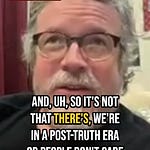Audio created by Google NotebookLM from the following content (taken from a recent Outrage Overload Newsletter section).
We hear the term "constitutional crisis" thrown around a lot these days, often by pundits and experts. But what does it actually mean for everyday citizens? It's more than just political squabbling; it's a breakdown in the fundamental rules and norms that govern our society, and the consequences can be deeply personal. Here are a few ways a weakening of our constitutional framework could impact your life:
Erosion of the Rule of Law: A Foundation Under Threat
The rule of law isn't merely a legal concept; it's the bedrock of a stable and just society. It guarantees equal treatment under the law and provides mechanisms for accountability. A constitutional crisis, by its nature, undermines this foundation. When the established rules and norms of governance are disregarded, legal protections weaken, creating an environment where power becomes arbitrary and unpredictable. This erosion can manifest in various ways, from selective enforcement of laws to the manipulation of legal processes for political gain.
The Specter of Civil Unrest: Beyond Political Disagreement
While political disagreement is a healthy part of a democracy, a constitutional crisis can amplify societal divisions to dangerous levels. Disputes over the legitimacy of governing institutions, coupled with heightened polarization, can fuel social unrest. Protests, demonstrations, and even more serious forms of civil disorder become more likely when citizens lose faith in the established processes for resolving conflicts. This instability can disrupt daily life, impacting everything from economic activity to personal safety.
Unchecked Executive Power: A Threat to Democratic Governance
A core principle of constitutionalism is the separation of powers. A constitutional crisis often involves an imbalance, with one branch of government, typically the executive, accruing excessive power, as we’re seeing developing now. This unchecked authority can have profound consequences for citizens:
Electoral Integrity (Your vote won’t matter): When executive power expands, the potential for manipulation of the electoral process increases. Control over voter registration, ballot access, and election administration can be used to influence outcomes, undermining the principle of free and fair elections. .
First Amendment Freedoms in Jeopardy: Freedoms of speech, the press, and assembly are fundamental to a democratic society. However, in a climate of unchecked executive power, these freedoms can be curtailed under the guise of national security or public order. This can lead to self-censorship and a chilling effect on dissent.
The Shadow of Emergency Powers: Expanded use of national emergency powers could allow the president to freeze bank accounts, limit communication systems, or deploy federal troops domestically. Declaring a national emergency could postpone elections or create conditions under which fair voting is compromised.
Diminished Accountability: A weakened legislature and judiciary further exacerbate the problem of unchecked executive power. Without effective checks and balances, citizens have fewer avenues to hold the government accountable for its actions. This can lead to policies being implemented without public input or oversight, and with limited recourse for those harmed by government overreach.
Conclusion: Defending the Constitutional Order
A constitutional crisis is not an abstract notion for politicians and scholars to debate; it's a direct threat to the rights, freedoms, and well-being of citizens. It’s easy to hear the term and simply move on: “it doesn’t affect me” – but only by understanding these real-world consequences can we truly appreciate the importance of our democratic institutions and the rule of law, and be motivated to protect them.














Share this post